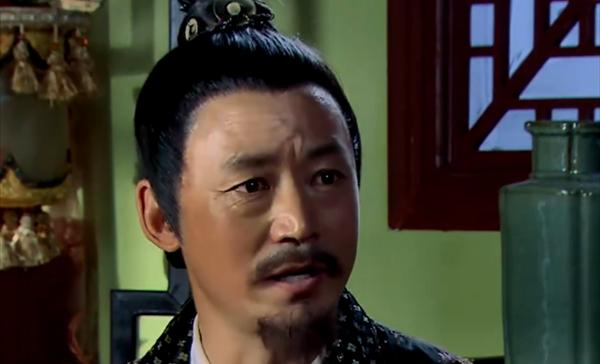Located in the central part of Shandong Province, Zibo City has a long history and is the birthplace of Qi culture. During the Three Kingdoms period at the end of the Han Dynasty, the area belonged to the Qingzhou Thorn History Department and was called Le'an County. According to incomplete statistics, there are three people from the Three Kingdoms whose origin is Zibo City. Among them, there is one person in Linzi District and two people in Gaoqing County.

The Three Kingdoms figure in Linzi District is named Zhou Xuan, the character Kong He, a famous Qishi during the Three Kingdoms period, who is famous for his ability to interpret dreams. In his early years, Zhou Xuan served as a county official in Le'an County, and the name of the county's taishou was Yang Pei. At that time, the Yellow Turban was rampant in Le'an County. One day, Yang Pei dreamed that someone told him that Cao Gong would come to Le'an County on August 1 and hand him a cane, while also giving him medicinal wine to drink. Yang Pei was puzzled by this, so he asked Zhou Xuan to interpret the dream. Zhou Xuan explained that the dream heralded that the Yellow Turban Rebellion in Le'an County would be put down on August 1. In fact, as Zhou Xuan said, by August 1, the Yellow Turban Army in Le'an County was destroyed and completely annihilated. Not long after, the famous scholar Liu Zhen came to Zhou Xuan, saying that he dreamed that the snake had grown four legs, and he was burrowing in front of his house, asking Zhou Xuan to interpret the dream. Zhou Xuan told Liu Zhen that the dream foreshadowed the killing of a woman in Liu Zhen's hometown of Dongping County. A few days later, two female thieves in Dongping County were killed by the government.
Zhou Xuan's proficiency in dream interpretation was later learned by The Wei Emperor Cao Pi. Cao Pi felt very magical, so he transferred Zhou Xuan to the capital and served as a Zhonglang. Once, Cao Pi dreamed that two tiles on the roof of the palace fell to the ground and suddenly turned into a pair of Mandarin ducks. Cao Pi did not understand his meaning and asked Zhou Xuan to interpret the dream. Zhou Xuan told Cao Pi that this foreshadowed that someone in Cao Pi's harem would die violently. Zhou Xuan had just finished speaking, and some of his entourage panicked and came to report that someone in the harem had died due to a verbal altercation.
After some time, Cao Pi dreamed of qing qi connecting from the earth to the heavens. Zhou Xuan believed that this foreshadowed that there would be a noble lady who would die unjustly. Before summoning Zhou Xuan, Cao Pi had just ordered someone to send Out Consort Zhen's edict at this time. Hearing Zhou Xuan's words, Cao Pi hurriedly ordered someone to recover the edict, but unfortunately it was still a step too late, and Concubine Zhen had already committed suicide. Since then, Cao Pi has been convinced of Zhou Xuan. Since then, Zhou Xuan has been serving in the imperial court, and died of illness during the reign of Emperor Cao Rui of Wei.
The two Three Kingdoms figures in Gaoqing County are a father and son, the father is named Guoyuan, and the son is named Guotai. Guo yuan, zi ni, studied under the great Confucian Zheng Xuan in his early years, and later went to Liaodong with Guan Ning, Feng Yuan, Wang Lie, and others to avoid disasters. In the early years of Emperor Jian'an, Guoyuan returned to the Central Plains and joined the Cao Wei clique, where he was appointed by Cao Cao as a subordinate of Sikong Province. During this period, Guoyuan was ordered to preside over the affairs of Tuntian, and was known for his meticulousness, seriousness, thoughtfulness, diligence and efficiency, which was deeply appreciated by Cao Cao.
In the sixteenth year of Emperor Jian'an (211 AD), Cao Cao led his troops to Guanzhong to compete with Han Sui and Ma Chao's clique, and Guoyuan, who was then the governor of the Xiangfu Prefecture, was ordered to stay in Xuchang and preside over the affairs of the Xiangfu. In the middle of the same year, Tian Yin and Su Bo rebelled in the Hejian area. The Cao general Jia Xin led his troops to quell the rebellion and captured more than a thousand of Tian Yin's troops. At that time, many ministers advocated the murder of all these people as an example. Guo Yuan proposed that these people were not the chief evil and asked Cao Cao for pardon. In the end, Cao Cao adopted Guo yuan's suggestion and pardoned all the more than a thousand people, which played a very important role in stabilizing the situation in the Hejian region.
Since the Western Han Dynasty, there has been an unwritten rule in the chapters of reporting war to the imperial court, and the number of enemy soldiers killed or captured has often been exaggerated tenfold, and Guoyuan is very dismissive of this. Therefore, when The number of enemy soldiers killed or captured reported by Kuniyuan is reported according to the actual number of people. Cao Cao admired Guoyuan's approach and promoted him to the post of Taishou of Wei Commandery. A few years later, Guoyuan was promoted to taibu (太仆) and died of illness in the middle of Emperor Jian'an' reign. Guotai, the son of Guoyuan, was appointed by Cao Cao after his father's death, and his deeds and year of death are unknown.
Reference book: Romance of the Three Kingdoms